“Before they announced the ceasefire, we were just trying not to be too hopeful. Because it happened too many times. We were disappointed a million times.”
This is 24-year old Joudi Alafranji. She lives in Gaza. This is the seventh war she has lived through.
We spoke by phone on Friday, January 17th, two days after the ceasefire deal was announced.
“So when we started to feel like okay, this is getting real, I was the happiest person ever. I was just waiting to celebrate. To celebrate for days.
We went down the street and we hugged our neighbours, the people around us in the tents. And then everyone got back to their home or tent. And now we’re just waiting. Waiting in silence.”
But it’s not really silence.
“They’ve been bombing the shit out of us for the last 3 days. Including before the ceasefire announcement, and including today.”
Running 15km Back in Joy
Joudi is in the south with her sisters, her father, his wife, and her three half-siblings. Previously, she lived in Gaza City. Her time was spent between her mother’s and father’s homes. Joudi’s mother’s husband is British, and both of them were able to leave to Egypt, where they have been since November of 2023.
But to Joudi, her mother’s house was home.
“The first time they said that there was a ceasefire was back in February of last year.
We celebrated. We thought it was over. The IDF had invaded that area. They burned those streets, they burned so many houses, they bombed so many buildings in that area.
But our building, it was still standing, although there was a lot of bullets in it, and there was a lot of bombshells from the tanks. There were many floors also that were burnt, but it was still there. So it was okay for us.
But after February, the IDF went back to that area. They re-invaded it. I don't know why.
We went back after they left, and we discovered that our building was bombed.
And it wasn't just a normal bombing. From one side, it looks whole. And then on the other side… looks like biscuits.
We called my mom.”
Joudi is crying now, as she shares this story.
“It was the only place I cared about. It was… Everything was gone.”
Jodie’s father’s place is still standing, although, like most remaining homes, it’s been robbed. Still, she’s hoping that when she returns, she will find something that belongs to her.
“Whatever it is. Anything that’s left I’m going to be happy with it.”
Joudi and her family are due to go back to her father’s home seven days after the hostages start to be released.
“That would be the day that everyone who was displaced who will be literally running that 15km back in joy.”
“You feel like, no way you’re going to survive this. No way.”
“My dad actually never wanted to leave our home. But I was so scared. I was begging him all the time to leave, because I was traumatized from the previous war of 2021 when I lost a colleague.
Her name was Shaimaa. She lived on the same street as us. She lived in a family building, like us, and they said they bombed a tunnel near their home. It collapsed and her whole family died. Every single one of them.
It was a horrible night. So every time a war happened after that, in 2022 and in 2023 May and in 2023 October, I would just be shaking and crying and imaging the same thing happened to me.
That was why I just wanted to leave.
They went crazy after October 7th. I was just sure that it would be our turn anytime.
We didn’t get out of [my dad’s house] for 6 days. I felt like it was in a grave. I’m thankful it was only 6 days. To the people who are still in the north, it has been over 400 days.
What they did translates to ‘firebelt’. It’s when multiple places are bombed at the same time—intense bombing with huge bombs around the same area.
The first time they used this method was in 2021. It would be in the middle of the night. They would start bombing the shit out of the area. And everyone in the city hears it.
I remember talking to my best friend. And I would say, ’It’s near me,’ but my friend actually lives near the beach, so she says, ‘No, it’s actually around us.’ Everyone thought it was around them because of how huge the bombs were and how loud and crazy it was.
And you would just feel like you are, you feel like you’re going to die. You feel like no way you’re going to survive this. No way.”
“In 2021, it would be, like, one firebelt a night. But in October [2023], it was continuous. It never stopped. It never, never stopped for those 6 days. They stopped for 15, 20 minutes, then they continued.
Also, my mother lived in the east of Gaza City. It’s more dangerous because it’s closer to Israel. And there’s a lot of military Hamas there, a lot of resistance there.
So I would be just sobbing all the time, calling my mother, calling my friends, freaking out, reading Qu’ran. Trying to sleep.”
“The world will never let this happen.”
“When they cut off water, they cut off food, it was terrifying. Especially electricity. Already electricity was always going off in Gaza, they had a schedule for it to be on and off. But when we felt like we were all alone at that time, it was really scary.
We were just obsessively watching the news, waiting for anyone to help us. They are trying to starve us, they are trying to bomb us, to kill us, they are trying to isolate us from everything. Why, why, why … what the hell, why isn’t anyone doing anything?
The third day of the war, electricity was completely cut off. There was also no water. Thankfully we still had drinking water and we still had enough food. And when we evacuated we took it all with us because we knew there was almost nothing here. That was the scariest part, feeling like we are all alone and no one’s helping us. All kinds of hell are being done on us.
When my mother left, I was so relieved because at least I’m not going to lose someone. If I die I die, I don’t care. I was so scared of losing her.
I thought, the world will never let this happen.”
Here, I asked Joudi how it feels that nobody helped. That nobody did anything.
“Honestly, it feels really crazy. Because in the beginning, we knew that nothing like this would ever happen, because you know, we have social media, we have the news. Everyone will know the truth. They can’t hide what they do. They can’t terrorize us with silence.
But turns out, that was bullshit. We were bullshitting ourselves.
We discovered that no one can do anything to defy Netanyahu or Biden. Even Biden can’t say no to Netanyahu. It was horrific to realize that he controls the world. No one can stop him. No one can help us.
Part of the relief that I got when we evacuated was because no one was going to stay silent. We literally are getting expelled out of our homes. We are terrorized. They are telling us, ‘Leave or we will bomb the shit out of you.’
We never thought it would last more than 4 - 5 days, that’s why we didn’t take any of our stuff. Me and my sister took a small suitcase. 4 girls, we only took a few clothes. So I thought, there’s just no way no one’s going to do anything.
At that time, they were saying that Trump will kick us out to Sinai Desert in Egypt, and I was just fine with it. I just didn’t want to be crushed under my house.”
Gaza is so small and they bombed way too many times, so I felt like that we are of the remaining 5%. I thought that nothing else was left. I was so sure that it was going to be our turn.
I thought there was not going to be a blue sky. When I got here and I saw our relatives, it was different. Even though the bombing never stopped, but it was much less than what was happening in Gaza City. This area that I’m in is more like a countryside, so there’s not much buildings, there is more empty land. So when they evacuated Khan Younis, Rafah and the eastern parts of the middle area, all these empty lands in the place that I’m in right now they are filled with tents.
“It was half the size of a normal grave.”
“Shaimaa was in my dental school. She was actually engaged.
In the beginning of the war on the 7th of October, I think it was the second day, we lost another student in our class. Or maybe even the same day. I don't know, I don't remember any distinction in those days.
His name was Ahmed Haran. He was my friend's brother, too. And he was my classmate.
He was laying on his bed, and the house near them was bombed. The walls fell on him, and he died.
I cried for the whole day and even day after, because it triggered me, because of what happened to Shaimaa and what can happen to me and my sisters and everyone else.
And he was a really, really good person.
And then when, also in October [2023], we lost another friend. Her name is Marwa. I don't even know her story, because I didn't even have wifi for two months, until. December. I would know these things by my friends who had wifi, they would text me.
Abdallah was in my group. I saw him every day. I think it was in November, we heard the news that he was in the ICU. He was he was actually in Rafah. Rafah was supposed to be the best, the safest place, but the building near them was bombed and it fell on their building.
Most of his family was killed or injured. He was severely injured. He was in the hospital for seven days. We heard good news that he was recovering and that he was going to be okay. Suddenly, we got the news that he was gone.
His death wasn't even instant. He had to suffer. I heard that he got septicaemia in the hospital because of, because there was so many patients and not enough people to care for them.
There was a technician, whose name is Mohammed. He is, I think, 50 years old. He was the kindest, really the kindest man. He was killed in that massacre In Jabalia. That massacre that I think 400 people were killed. When they bombed the whole block in Jabalia.
There is also a teaching assistant. His name was Emile. He was actually a new assistant. So he was young, really young. And until now, they are not even sure that he—like, they never found his body. He was going to a place, near it was bombed, so they assumed that he was dead.
And then they said, Okay, we never found his body. So maybe he's just he was taken by the IDF or something. But now they're just saying that no, there is no way that he was taken by the IDF, because they never got into that area.
No one knows where his body went. Because of the huge bombs, some bodies, they just evaporate.
Recently, in the summer, we lost another in my class. Her name was Ekhlas. She was married. Her and her siblings, they all died.
There’s also my friend Nada. She was in my school, in high school, in my friend group.
They were in the north, and maybe in January of 2024, they were going back home to get more necessities. Her and her mother and father. Their car was bombed.
The most shocking part was when we saw the grave of her and her parents. It was half of the size of normal grave, and the three of them were in that grave. So you can just imagine what happened to them.
She she was really a brilliant person. She was a pharmacist. She had just graduated like me. She had a lot of dreams.
Nada had three or four younger siblings. They are totally alone now. They have they lost their big sister, they lost their mother, and they lost their father.”
You can find Jordi’s artwork on Instagram, and in this piece that was recently published in The Concordian.
"In the end, all I really want is to have my own space. I love my solitude. And I love drawing and sharing my art. The happiest moments in my life, really, were when I [had work displayed in] the art exhibits. It was my favourite ever.
So no matter what I do, I think I will always go back to art. My favourite is seeing people actually liking my heart, and seeing people who are actually interested in art. And talking about it with people who like it. Just talking to creative people.”
Joudi and her siblings, father, and stepmother are living in a small chalet in the countryside her father bought before the war.
“I just feel horrible because I’m in a building. I feel like I’m not sharing enough suffering with my people because I’m not in a tent. But of course that shouldn’t be how I feel.
I suffered too much with my mental health before. I tortured myself mentally for years and years. From 2020-2024, I was in dental school and I really hated it. And when I found maybe there’s something to do about it, it felt like I should try doing that.”
Joudi credits her positive mindset to meditation and reading books about psychology.
“At least I know I can be positive. I still feel like shit most of the time, but when I feel good, I really feel good. It’s still a matter of time. But there’s so much hope.”
I ask her what would bring her the most happiness.
“To be with my sisters and to see them really happy. And I know it would make them happy if they were with my mother.”
Joudi has a twin sister, Tala. Her sister Leannah is 22, and her sister Dania is 15.
“Dania breaks my heart the most. I wish she didn’t have to suffer this much. I wish she didn’t lose her school. She loved her school so much. I told her, ‘Who the fuck loves their school?’ She used to be sad when there was no school.
She used to do basketball. She used to do dabke. She had a really happy life back in Gaza. I used to have hope from her when I was in my lowest moments. She had a big heart. She doesn’t hate anyone.
She has no friends here, none at all. They all left to Egypt. Some of them died. Now she’s just sitting here, trying to finish studying online.
I just want her to reach her full potential. And I really want her to reunite with my mother, because she loves my mother so much.”
If you’d like to help support Jodi’s family and contribute to her exit fees from Gaza, she has a GoFundMe page here.
Since I posted this, hours ago, I’ve learned that Joudi has lost another classmate. Dr. Momen Jouda was martyred this morning, January 19, while going back to his home in Rafah.
May he rest in power.

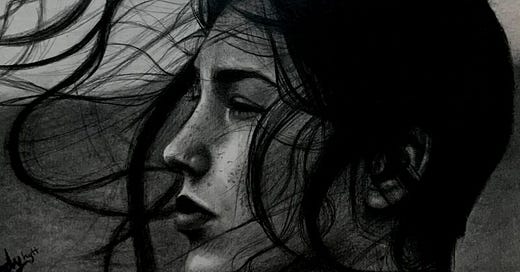


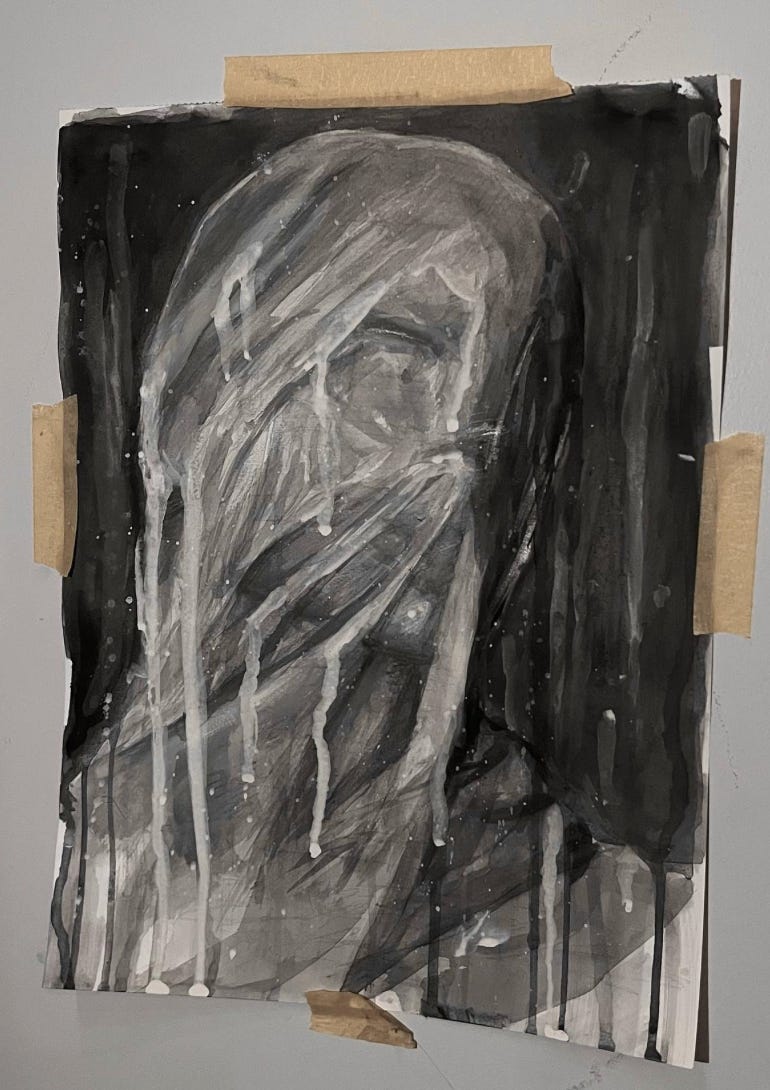
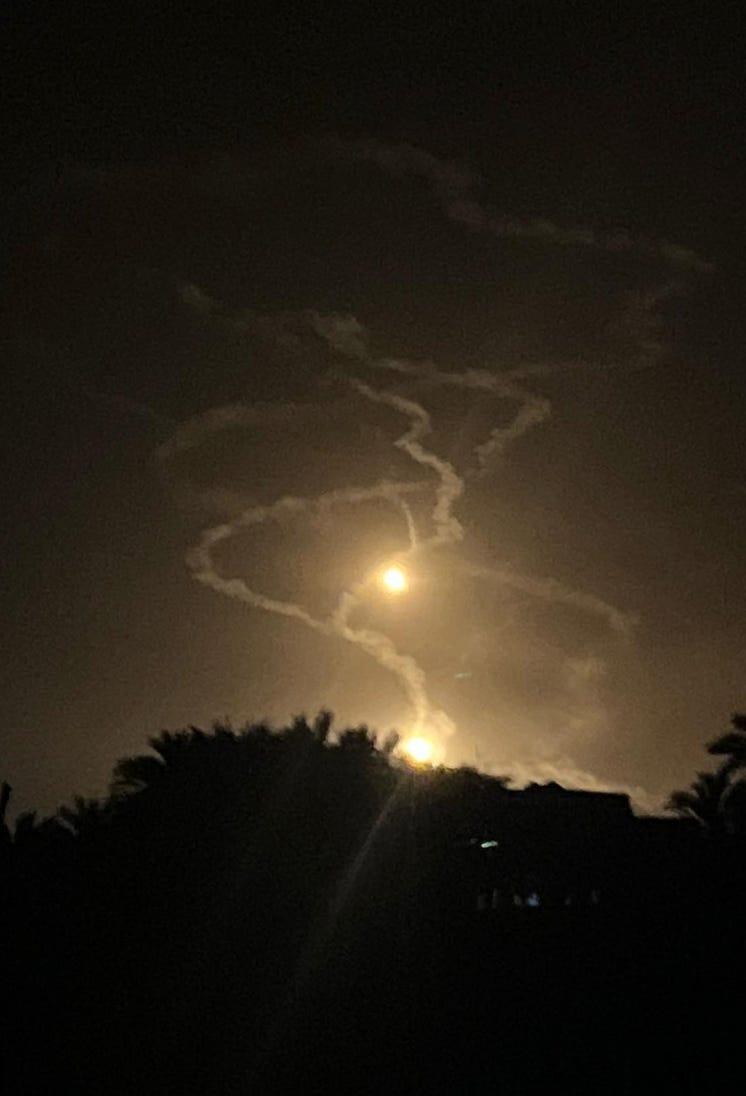

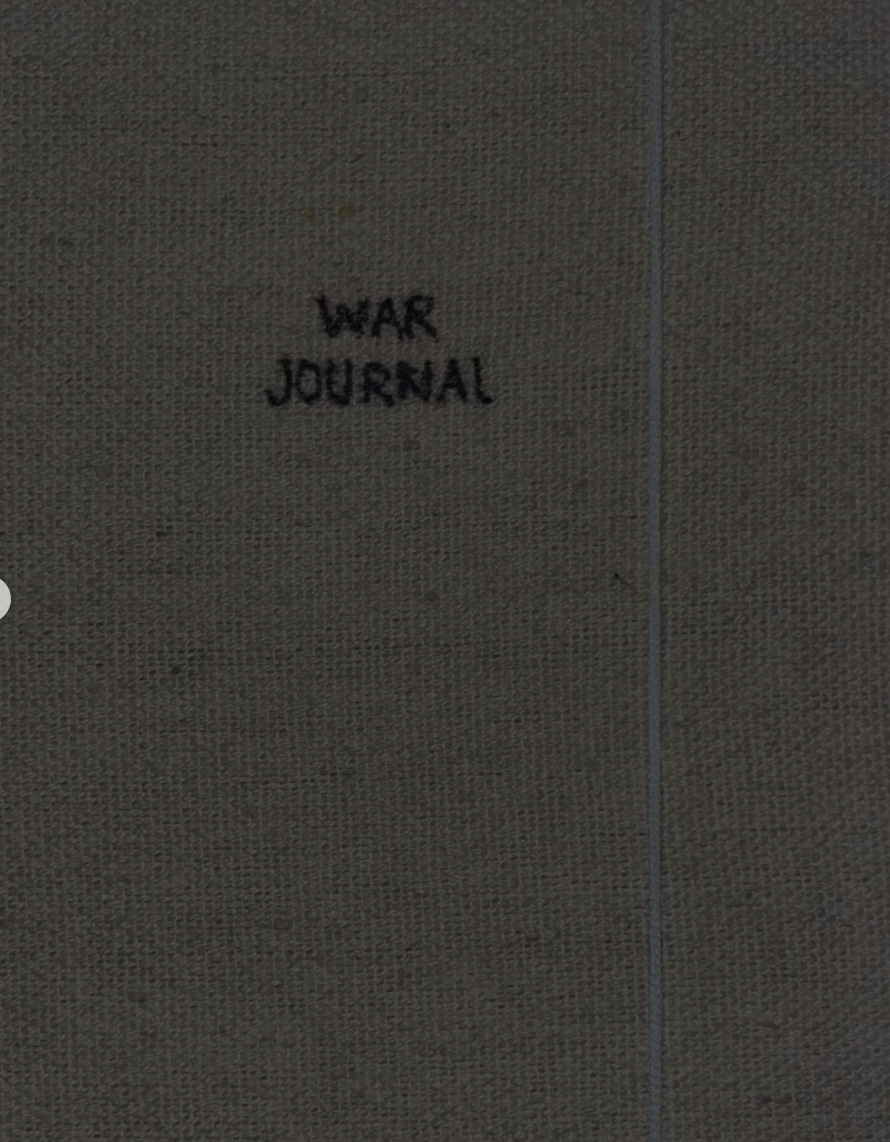


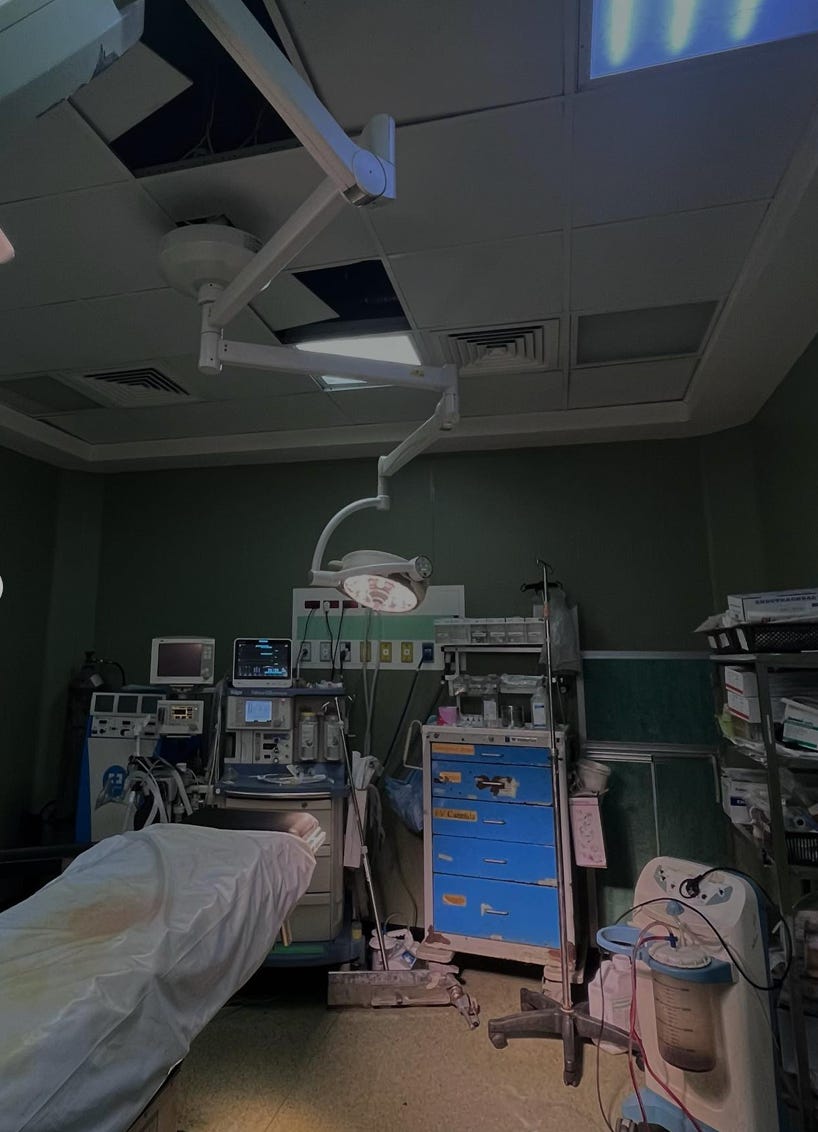

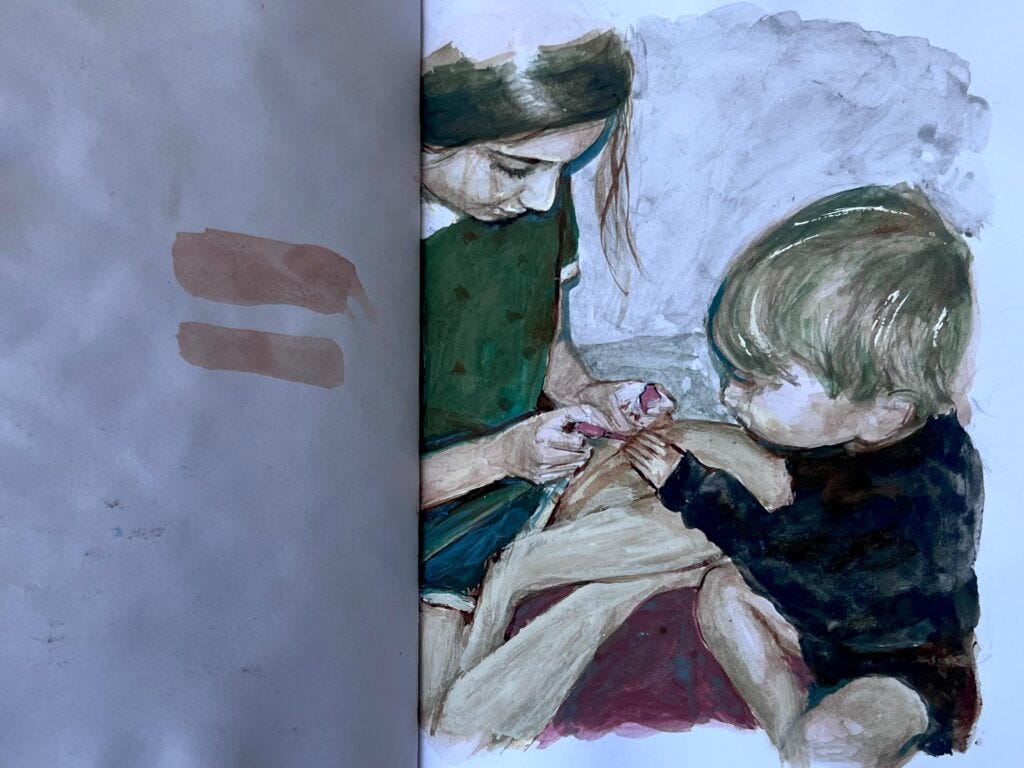


I hope that many will be inspired to donate and support this beautiful human. Thank you for sharing Joudi's story, and paying tribute to those she loved and lost. Let this ceasefire, going into effect today, last forever.
Thank you for sharing this.